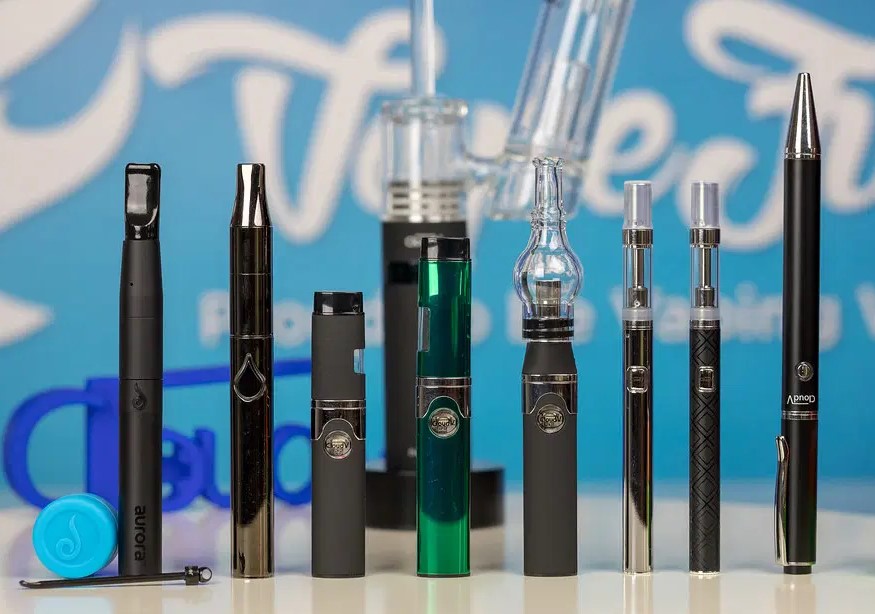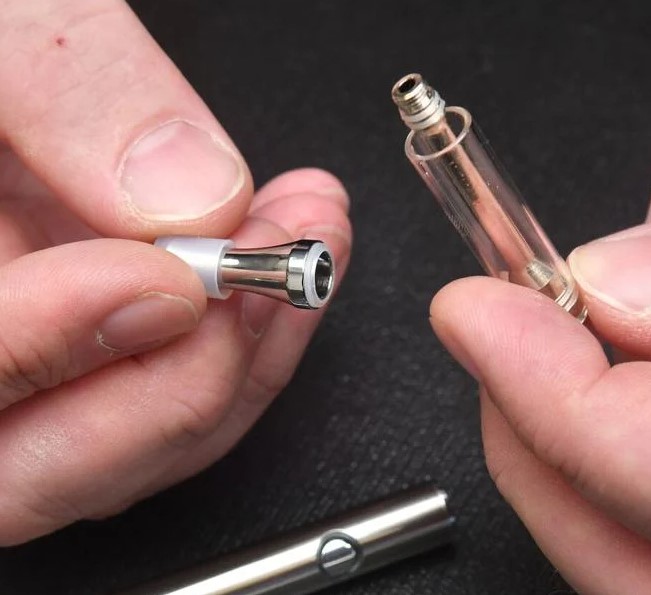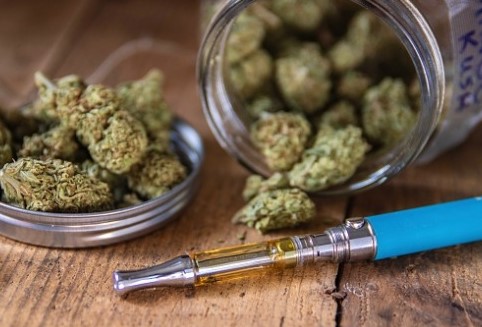You might be interested in learning about the different products available to you now that more states have legalized medical and recreational marijuana use. Vaping THC (tetrahydrocannabinol) oil is becoming increasingly popular. Looking to try something new? Check out this loud city wax pen.
THC oil is obtained from cannabis plants through the process of vaporization, or heating it and inhaling it through a vape pen or e-cigarette. There are many concerns about the health effects of this THC product type among healthcare providers.
Also Known As:THC vapors are created in a THC vaporizer by heating cannabis oil using a heater. The name “vape juice” refers to THC oil, which is also known as 710 (OIL backwards), wax, shatter, and black glass. A pod is the container that holds the oil.
Drug Class: Both the stimulant and depressant effects of marijuana have been well-known for centuries. It is, however, sometimes classified as a hallucinogen as well.
Common Side Effects: Cannabis Vaping Can Trigger Cough, Chest Pain, Shortness of Breath, and Gastrointestinal Issues as a Result of the E-Cigarette’s Heat Source.

How to Recognize THC Vaping Oil & Devices
THC oil e-cigarettes come in a variety of forms, including pen-like, rectangular, or oval. The oil is either pre-filled in the device or comes in tiny containers (pods) for refillable devices. The CDC has created a useful visual dictionary to aid in the identification of THC vaping devices and oils.
What Does Vaping THC Oil Do?
Marijuana contains THC, which causes you to feel “high.” It’s also supposed to impact pain, mood, and other emotions in addition to providing a euphoric feeling. By influencing cannabinoid receptors in the brain, it produces these effects.
THC has both therapeutic and negative effects. Some of the most frequent reasons individuals consume marijuana include treating anxiety, sleeplessness, chronic pain, and sadness. Vaping is the third most popular way to consume cannabis, followed by smoking, and edibles.
What the Experts Say
According to study, THC oil, especially if it contains vitamin E acetate, can be particularly hazardous to the lungs. Vitamin E acetate, which is often added to THC when producing it for e-cigarettes and vaping equipment, is highly dangerous when breathed in.
In 2019, the risks of vaping were brought to light. In September, public health officials began looking into an outbreak of a severe respiratory illness linked with e-cigarettes and vaping. By December, 2,561 instances had been reported of the lung condition known as e-cigarette or vape use-associated lung injury (EVALI) resulting in hospitalization or death.
EVALI has killed 70 people in 29 states and the District of Columbia. The number of fatalities rose to 70 across 29 states, with the District of Columbia. In addition, according to hospitalizations, 82% utilized THC-containing products, with 33% using them solely.
The Centers for Disease Control and Prevention (CDC) now advises against the use of e-cigarettes and vaping devices, especially those that include THC oil. The FDA has agreed with this view, as have the CDC and the Food and Drug Administration (FDA).
Vaping THC oil once can have a big influence on your lungs. A study in the Journal of the American Medical Association discovered that people who had never smoked marijuana or used it seldom were more likely to experience negative effects from vaping THC oil.
It appears that the negative results of THC ingestion by this method are due to a greater oil delivery. This was demonstrated by the fact that participants reported stronger effects and significant changes in their motor skills and cognitive functions.
Vaping marijuana concentrates, for example, contain THC levels that are up to four times as high as top-shelf cannabis. This may also explain why their effects are more potent.
Off-Label or Recently Approved Uses
The Food and Drug Administration has authorized a few THC-containing medicines for the treatment of certain health problems, including cancer, AIDS, and epilepsy. These drugs, on the other hand, contain pure chemicals derived from or based on those found in marijuana.
Because the long-term effects of marijuana usage in impure forms are unknown, the FDA does not allow THC usage in any form except for these medicines. This includes smoking THC oil.
Common Side Effects
The short and long-term consequences of marijuana use are numerous. Some short-term effects include:
- Coordination issues
- Distorted senses (such as sight, sound, touch)
- Increased anxiety
- Increased heart rate
- Issues with attention, memory, and learning
- Paranoia
Marijuana has long-term consequences including learning, memory, and sleep difficulties. Marijuana users may experience the following symptoms:
- Increased risk of addiction
- Increased risk of chronic cough
- Increased risk of schizophrenia (if a genetic risk also exists)
- Learning and memory issues
Marijuana can have several negative effects at higher dosages, which are commonly referred to as marijuana intoxication. Some of the potential consequences linked with smoking marijuana in larger amounts include:
- Dry mouth
- Impaired motor skills
- Impaired perception
- Red eyes
- Short-term memory issues
There are a few negative effects that have been linked to CBD oil usage specifically among individuals who vape infrequently. They include:
- Drowsiness
- Dry eyes
- Dry mouth
- Feeling sick
- Increased anxiety
- Increased coughing
- Increased hunger
- Memory issues
- Racing heart
- Restlessness
Vaping has the potential to harm the lungs, causing symptoms such as a rapid coughing onset, breathing difficulties, nausea, vomiting, diarrhea, and weight loss.
Signs of Use
What are the warning signs that someone in your life is using THC oil? Pot smoking may be witnessed through the following indicators:
- Being drowsy during the daytime
- Having bloodshot eyes
- Inability to judge time
- Increased cough or wheezing
- Increased hunger for no apparent reason
- Lack of focus or inability to concentrate
- Secretive behavior
- Trouble with coordination
- Unusually talkative
- Vaping devices or oils in their possession or in their room
- Weird, unexplained smells (some THC vaping oils are flavored, resulting in a variety of scents)
Marijuana vaping is on the increase, particularly in certain age groups. For example, the proportion of college-age kids who’ve vaped in the last month increased from 5.2% to 14% during just two years’ time. A 2022 research found that teen cannabis vaping in the prior 30 days rose sevenfold from 2013 to 2020.
Common Questions
There are a few myths surrounding cannabis and vaping.
THC Is Not the Same as CBD

Some people mix up THC with CBD (cannabidiol), another cannabinoid present in cannabis plants. However, it’s worth noting that while CBD oil and THC oil work in different ways on the body, they do so in very different ways.
Another distinction is that while THC has psychotropic effects, CBD does not. As a consequence, CBD does not cause intoxication and is thought to work with other receptors in the body to offer an overall sense of wellbeing.
There are legality differences too. As of February 2022, 37 states and four territories have approved the use of marijuana for medical purposes and 18 states and two territories have approved marijuana for recreational use.
Although these states and territories allow marijuana for medical or recreational purposes, it is still prohibited under federal law. Hemp (of which CBD oil is a derivative) was removed from the definition of marijuana in the 2018 Farm Bill, making it lawful according on if it contains 0.3 percent THC or less.
Vaping THC Is Not Safer Than Smoking It
According to a Gallup poll taken in 2018, the majority of Americans feel that vaping is less harmful than smoking, with 40% of respondents claiming that marijuana was “not too” bad. Some believe this because instead of smoke, vape involves inhaling vapor. The problem is that there isn’t enough evidence to back this up.
According to the FDA, there is no regulation of the chemicals in vaping products (so you don’t know what you’re getting), increased THC levels, and the potential for heating coils in vaping devices to expose users to carcinogens.
While some studies suggest that cannabis smoking is not as hazardous as previously thought, other studies recommend a need for extensive research before determining if it’s safe. According to health professionals, vaping marijuana may be even more harmful to the lungs than smoking or vaporizing nicotine. This does not imply that using THC oil is secure, but rather that it is thought to produce more lung damage when vaped.
While e-cigarettes are certainly less harmful than cigarettes, they may still pose a health hazard. According to a study published in Addiction, while vaping nicotine is safer than smoking cigarettes, the same may not be true when it comes to marijuana. Vitamin E acetate additives, for example, might make this delivery method even more dangerous than smoking a joint, increasing the risk of injury to the lungs.
Although the FDA has not approved the use of THC, as a result of increasing public interest and demand for cannabis, individuals are much more likely to experiment with it by smoking, eating, or vaporizing it.
Tolerance, Dependence, and Withdrawal
If you use THC oil on a daily basis, you might develop a tolerance. This is generally due to the fact that cannabis affects the brain in neuroadaptive ways, resulting in a tolerance. Vaping THC oil can also lead to substance abuse.
According to the National Institute on Drug Abuse (NIDA), 9% to 30% of individuals who use marijuana develop a substance use problem. People who begin using marijuana before they turn 18 are four to seven times more likely than adults to acquire cannabis abuse.
How Long Does THC Vaping Oil Stay In Your System?
Your body processes THC at different rates, and the length of time it remains in your system is contingent on a number of things. How often you use it, how much of it you consume, your usage methods, and the rate at which your body metabolizes the drug are all factors.
THC has been detected in saliva for up to 78 hours, in blood for at least 7 days, and in urine for up to 5 days among individuals who smoke marijuana frequently. Those that use the drug less often would have shorter detection periods.
Another study looked at how long THC was detected in the saliva after vaping, smoking, or eating edibles. It found that people who smoked or vaped had higher THC levels both immediately and later than those who used edibles.
Addiction
According to the National Institute on Drug Abuse, cannabis use disorder may develop into a marijuana addiction if you are unable to stop using it even when it affects various aspects of your life. This might lead to difficulties at work, school, or home.
Because some people incorrectly think that dependency is the same as addiction, it’s tough to know how many individuals are addicted to marijuana. Although one in ten persons who use marijuana will develop an addiction, according to SAMHSA.
One-half of 9,003 American adults in a poll felt that marijuana use puts users at danger of addiction.
Withdrawal
It is possible for cannabis users to feel mild withdrawal symptoms after stopping. These are generally minor:
- Anxiety
- Cravings
- Insomnia
- Irritability
- Reduced appetite
It’s not uncommon to find yourself unwilling to quit marijuana use because of minor or even severe symptoms. They might be bothersome, and if they are critical or bad, contact your doctor. They may be able to assist you in this regard.
How to Get Help
There are a number of options for individuals who want assistance with their marijuana use. The following appear to be the most successful:
- CBT focuses on teaching people how to monitor and change their actions, resulting in greater self-control and the resolution of issues that contribute to drug use.
- Contingency management is a type of behavioral therapy that focuses on monitoring behaviors and rewarding them if they are performed, or penalizing them if they aren’t, in order to encourage particular desirable actions.
- Motivational facilitation therapy, which helps individuals with addictions to better engage in therapy and change their behavior.
In the meantime, no medications are FDA-approved to treat cannabis use disorder, but several alternatives are being developed that might help by relieving symptoms linked to stress, anxiety, and sleeplessness.
